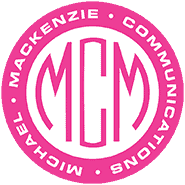If you’re anything like me, you’re quick to notice every little error in the writing you come across. Whether it be a menu, an advertisement, an email, or a plethora of various forms of writing – those pesky little spelling and grammatical errors catch your eye. Well, I’ll be the first to admit it sure is embarrassing to point out one of these errors only to find out you are actually the one who’s wrong.
When I see any of these words – “towards, backwards, forwards” – the little voice in my head instantly goes “Wrong!” The problem here is that they’re not necessarily wrong, but depending on your audience, they’re also not necessarily right.
Tacking an “s” onto any of these “-ward” words is appropriate based entirely on regional preference. In the United Kingdom and Australia, “towards” is the preferred spelling, and in Canada and the United States, “toward” is the preferred spelling. There is no difference in their meanings or functions, and both can be used interchangeably.
There are a number of differences in British and American English spellings, even though the alterations don’t change the words’ meanings. Here are some of the main differences, each example showing British English first and American English second:
British English words that end in “our” will usually end in “or” in American English.
Examples: Colour vs. Color, Flavour vs. Flavor, Neighbour vs. Neighbor
British English verbs that end in “yse” are always spelled “yze” in American English.
Examples: Analyse vs. Analyze, Breathalyse vs. Breathalyze
Verbs in British English that can be spelled with either “ize” or “ise” at the end are always spelled with “ize” in American English.
Examples: Apologise or Apologize vs. Apologize, Organize or Organise vs. Organize
The best way to choose between two variations is to consider who your audience is. If you are writing for an American audience, it’s not wrong to say “colour,” but it may look a little weird to people. The deviation draws attention to itself and away from the message you’re trying to convey. It’s best to use the situationally appropriate term rather than trying out something new and leaving your reader confused.
This post courtesy of MMC Summer 2019 Intern Bianca Price.



